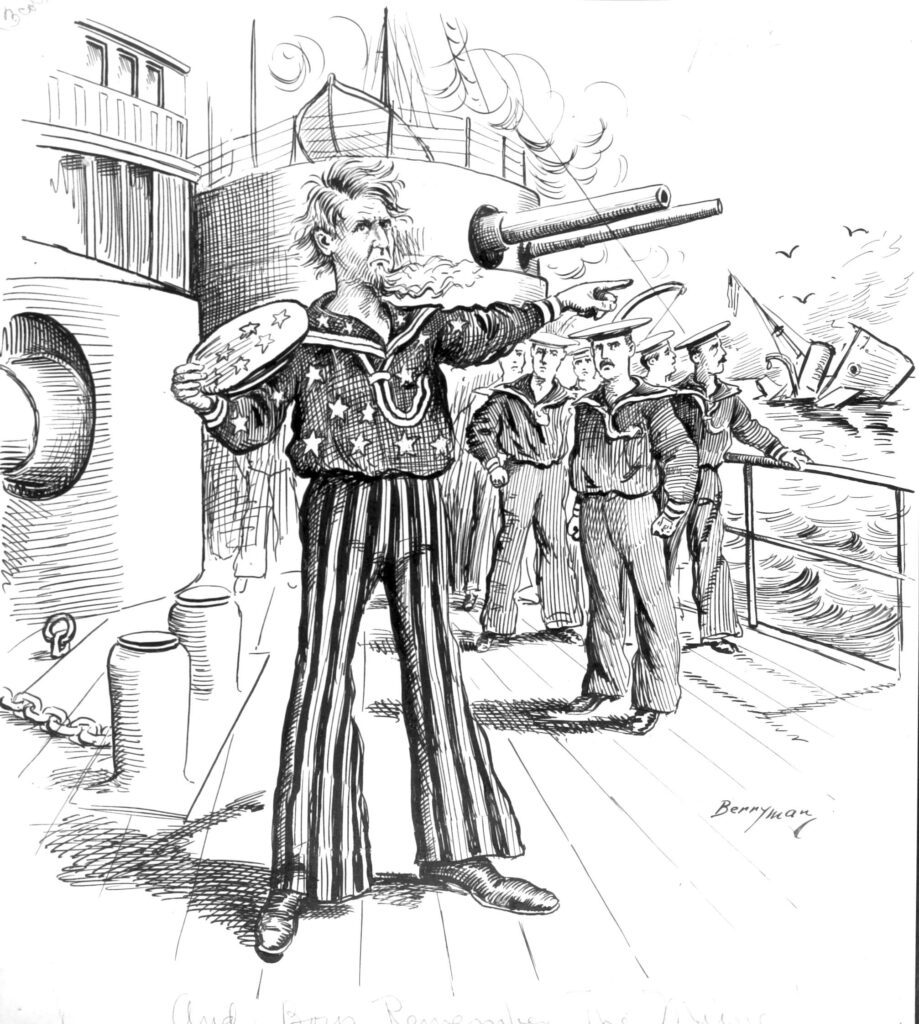Let's Talk
Washington Post might fail completely
The Washington Post has been in crisis before, but never like this, when the entire industry must change or die.
The Washington Post, slightly more than 145 years old, might be ready to die. Not even one of the left’s richest men can save this paper now, it seems. The Post has come back from bankruptcy before – but times are different today. Washington, D.C.’s premier broadsheet has offended half the country – and can’t rely on the other half to carry it.
Latest crazy doings at The Washington Post
Readers will remember that The Washington Post actually excused, even defended, the atrocities with which the Fourth Arab-Israeli War began. They took down this cartoon depicting the hypocrisy of the Islamic Resistance Movement (Arabic Harakah al-Muqāwamah al-Islāmiyyah, abbreviated HAMAS).
They then ran a report on people who “have lost their jobs, or faced criticism or backlash, for their criticism of Israel.”
But the Post neglected to report that this criticism extended to supporting HAMAS and blaming Israel for the war. Fox News pointed this out. Their worst gaffe was accusing the Israeli Defense Forces of firing on a Doctors Without Borders (French Médecins sans frontières, abbreviated MSF) evacuating premature babies from an unidentified hospital. Compare this original version (via the Wayback Machine) to the corrected version. Any news organ can make a mistake – but The Washington Post never admitted to the mistake.
On or about January 3, 2024, the Post accused The Gateway Pundit of lying about election fraud in Michigan during the Election of 2020. The report (through Microsoft Start) accused Jim Hoft’s organ of making this allegation without proof. Hoft, yesterday, served up that proof, which the Post’s Sarah Ellison failed to mention. He cited the original report (from August 23, 2023) that had its basis in a report from a Michigan State Police officer. (See also here.)
Losing subscribers, engagement and money
More recently came a report that the Post is in serious – perhaps terminal – financial straits. In fact it has been in trouble since August of 2022, according to The New York Times and Fox News. After Donald Trump left the White House, the Post lost half a million subscribers in the ensuing two years. Other news organs expressed shock that the paper would lose money, after Jeff Bezos returned it to profitability in 2016.
Last month 750 members of its in-house guild went on strike, according to Politico. Writer Jack Shafer observed that all newspapers would eventually die. Politico had already noted that the paper was charging an astronomical sum – $700 a year – for home delivery.
Politico blithely assumed that loyal readers would cover the paper’s costs. But now RedState reports that the Post will lose $100 million for 2023 – as it predicted last summer. The paper also lost half its online engagement, from 139 million visitors per month to 60 million. Josh Kraushaar, editor-in-chief of Jewish Insider, dropped this thread with quotes from Puck News:
Mike LaChance at The Gateway Pundit linked to the RedState report and also gathered several other pithy X posts:
In reply to Lilly Wilson’s post, another user offered this criticism of Woodward and Bernstein (see below):
History of the Post
The Washington Post began on December 6, 1877 when Stilson Hutchins, Democrat and Southern sympathizer, founded it. The irony of the founding history of this paper is especially rich. Hutchins thoroughly imbibed the racism of the Democratic Party in those days and promoted it shamelessly throughout his tenure. But eventually he lost his mental faculties, and sold the paper in 1889. Though before he did, he bought out the capital city’s only Republican paper, The Republican National.
The new owners, former Postmaster General Frank Hatton and former Rep. Beriah Wilkins (D-Ohio), actually commissioned a John Philip Sousa march to headline an essay contest. Anyone who listens to a United States Marine Band concert, or watches the Frank Sinatra movie The Manchurian Candidate, will surely recognize it.
In 1893 the Post moved to the headquarters it would use until 1950. A year later, Hatton died, and Wilkins acquired Hatton’s share.
The Washington Post is no stranger to “yellow journalism.” It even gave William Randolph Hearst and Joseph Pulitzer a run for their money. For in 1898 it ran Clifford K. Berryman’s famous “Remember the Maine” cartoon.

The McLean, Meyer and Graham eras
In 1903, Wilkins died. Two years later his sons sold it to John Roll McLean, who owned The Cincinnati Enquirer. He ran the paper for eleven years, and when he died he put the paper into a trust. His son Edward “Ned” McLean broke the trust and ran the paper into the ground. (Some say McLean self-dealt with company funds to support his lavish lifestyle.) But soon after he gained control, he ran a story – the veracity of which CNAV cannot independently verify – of an interracial sex crime. That started the 1919 Washington Race Riots. The Washington Post would finally acknowledge its role in that affair a century later.
In 1929, Eugene Meyer offered McLean $5 million for the Post. McLean refused. But four years later, The Washington Post was bankrupt. Meyer bought the paper at auction for $825,000. Only under his tenure has The Washington Post been anything other than a Democratic rag. Meyer restored the paper to health, but in 1946 he received an appointment to head the World Bank. So he turned the paper over to his son-in-law, Philip Graham.
The Grahams returned the Post to the Democratic fold. Katherine Graham, Meyer’s daughter, was a personal friend of Saul (Rules for Radicals) Alinsky, and paid tribute to him in the pages of the Post.
The Washington Post Company and its successor Jeff Bezos
The Washington Post Company went public in 1971 at the height of the Pentagon Papers affair. Ben Bradlee, Executive Editor since 1968, gave carte blanche to the famous reporting duo, Bob Woodward and Carl Bernstein. The wrecking of Richard M. Nixon’s career culminated a campaign of Communist sympathy that began with the paper’s initial opposition to the investigation by Senator Joseph McCarthy (R-Wisc.) and with Katherine Graham’s repeatedly having British spy Donald Maclean as a guest. Indeed The Washington Post gained a new nickname: Pravda on the Potomac.
The Post has a mixed record on Operation Enduring Freedom, the Bush (Junior) administration’s adventure in Iraq. Why the Post wrote 27 editorials in support of a hypothetical invasion of Iraq, no one will say.
In 2013, Jeff Bezos bought the Post for $250 million. He left behind the WaPo company’s other assets, including Kaplan Test Prep and Admissions. That company took the name Graham Holdings afterward. Under Bezos’ leadership, the Post has become an exclusively liberal paper. In 2017 it put on its masthead what had been an unofficial motto:
Democracy dies in darkness.
But the Bezos history also includes the Nick Sandmann controversy and lawsuit. And, of course, shadings of fact about everything from the January 6 event to the Fourth Arab-Israeli War. Now, subscribers and online visitors seem to be abandoning the paper.
Analysis
Anyone would think The Washington Post would have learned from its earlier history. But it seems rather to follow the law of inertia.
A body in motion remains in motion, along the same vector (course and speed), until compelled to change. Sir Isaac Newton
From misrepresenting the destruction of USS Maine ACR-1 to apparently helping America get into the Second Iraq War; from the 1919 Washington Race Riots to the Fourth Arab-Israeli War; the observation must remain the same. The Post did not learn from its earlier institutional mistakes. Or if it did, it learned exactly the wrong lesson.
Mike LaChance closed his article with this observation:
People are tired of their same old leftist spin on everything. In the internet age, there are so many more interesting choices for media. The Washington Post is a dinosaur. Mike LaChance
And so it is, not only in form (how many people read print editions anymore?) but also in substance. In fact the form criticism isn’t entirely just; The Epoch Times publishes a weekly print edition and does quite well. But the substance criticism remains. Except perhaps during the Meyer years, The Washington Post never seems to have learned the first rule of journalism: never lie to your readers. Julius Caesar, inventor of the first Western newspaper (Acta Diurna Senatus Romani), could have told the current editorial board. Sadly, they might not have listened. Even now, they’ll make excuses – and the American people are as tired of those as they are of the lies.
Terry A. Hurlbut has been a student of politics, philosophy, and science for more than 35 years. He is a graduate of Yale College and has served as a physician-level laboratory administrator in a 250-bed community hospital. He also is a serious student of the Bible, is conversant in its two primary original languages, and has followed the creation-science movement closely since 1993.
-

 Civilization2 days ago
Civilization2 days agoWhy Europe Shouldn’t Be Upset at Trump’s Venezuelan Actions
-

 Accountability5 days ago
Accountability5 days agoWaste of the Day: Principal Bought Lobster with School Funds
-

 Executive3 days ago
Executive3 days agoHow Relaxed COVID-Era Rules Fueled Minnesota’s Biggest Scam
-

 Constitution4 days ago
Constitution4 days agoTrump, Canada, and the Constitutional Problem Beneath the Bridge
-

 Christianity Today2 days ago
Christianity Today2 days agoSurprising Revival: Gen Z Men & Highly Educated Lead Return to Religion
-

 Civilization3 days ago
Civilization3 days agoThe End of Purple States and Competitive Districts
-

 Executive3 days ago
Executive3 days agoWaste of the Day: Can You Hear Me Now?
-

 Executive4 days ago
Executive4 days agoWaste of the Day: States Spent Welfare in “Crazy Ways”












